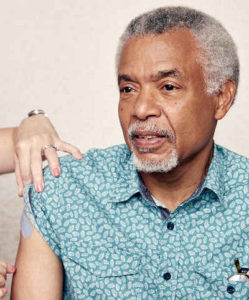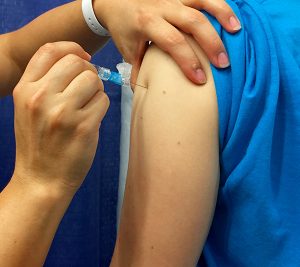Tag
hesitancy
-
•
Debunk vaccination myths
[The following is a guest op-ed and does not necessarily reflect the views of AHCJ or its board of directors.]…

-
Vaccine hesitancy among rural elders, caregivers nearly double of more urban counterparts
A recent survey of family caregivers revealed some troubling information about the divide between rural and urban communities regarding COVID-19…




